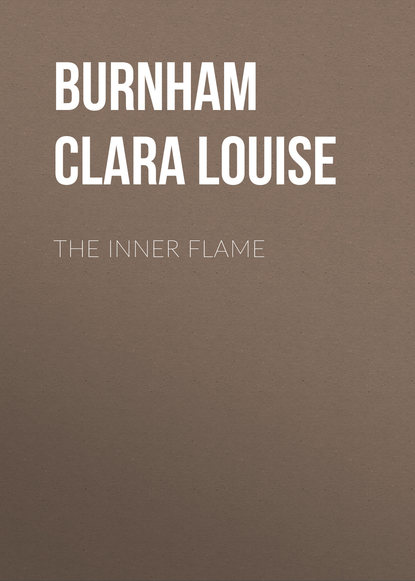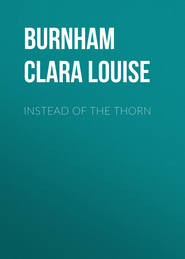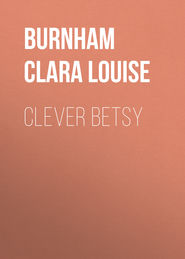По всем вопросам обращайтесь на: info@litportal.ru
(©) 2003-2024.
✖
The Inner Flame
Настройки чтения
Размер шрифта
Высота строк
Поля
"Nonsense, talking about wills," rejoined Eliza brusquely, a new delicacy in the loved face making her tone sharp, "more likely I'll be leaving something to you; though I don't know what it would be, unless 'twas the cat."
Mrs. Ballard smiled. "Not a bad legacy," she replied. "Pluto is very sympathetic. He likes to watch me paint. He has really concluded to endure the smell of oil and turpentine just to keep me company."
At the moment the night-black cat was lifting green eyes of approval to his own portrait which stood near, and Mrs. Ballard buried a veined hand in his glossy fur. A few weeks later that hand was still. Oh, the dear garments with the outline of the wearer still warm in their curves! Who has not known the tender, overpowering anguish of their touch? Every day Eliza tried to systematize and pack her new belongings, and every day she postponed the ordeal until to-morrow.
Mrs. Ballard's watch alone stood on the table at the head of her bed, hanging in the little satin slipper just as it had ticked beside her mistress's sleeping form so many years. The watch seemed as alive as Pluto, and almost as much of a companion. It spoke eloquently of the gentle being who had always been unconscious of its warnings.
On the mantelpiece in the living-room, which had been studio as well, was Philip Sidney's photograph and his two sketches, one of his mother, and one of a storm-beaten tree. They were the two that Mary Sidney had sent in response to her aunt's gift in the summer-time. All three pictures were turned now to the wall. Mrs. Sidney was a relative. That stamped her for Eliza. The sketches had been either the vainglorious gift of a fond mamma, or else prompted by hope of the very result they had gained. As for the photograph of the artist, Eliza could not deny that it had marvellously cheered and companioned the last months of her dear one's life.
Indeed, in those days, recent yet already seeming so long past, Eliza, out in her kitchen, had often laughed grimly to herself at the infatuation for the picture shown by her mistress.
"If she was sixteen she couldn't be more head over heels in love," she would soliloquize. "I s'pose an artist has got to be just so stirred up by good looks, whether it's a landscape or a human; but I know I wouldn't trust a handsome man around the corner with a dog's dinner."
In pursuance of these reflections, when her mistress had gone, Phil's picture went with the sketches, his face to the wall.
Eliza's attitude toward the whole world was defiance on the subject of her mistress's lifework. Of course, Mrs. Ballard was an artist; a great artist. Eliza knew it must be so, there were so many of her pictures that she could not understand.
A canvas which was a blur to her contained so much which the painter would explain while Eliza stood devotedly by, dutifully assenting to the unravelling of the snarl of form and color.
"You don't care for it, do you, Eliza?" the artist would say sometimes, wistfully.
"Indeed, I do, Mrs. Ballard," would come the response, and never words rang more prompt and true. "I'm just one o' those folks so practical, I can't see an inch before my nose and I've never had advantages. I haven't got any insight, as you call it, beyond a dishpan; but when you explain it so clear, that's when I begin to see."
This latter was a loyal lie; as a rule, Eliza never did see; but she applauded just the same with vague murmurs of wonder and admiration.
It hurt the faithful soul even now to recall how, when the sketches came from the West, her mistress had eagerly examined them, and bitten her lip, her eyes glistening. "There's the true touch, Eliza," she had said quietly. "This boy has a spark of the divine fire."
"Pooh! I don't think so at all," Eliza had returned stoutly and contemptuously. "Of course, that drawin' of his mother is pleasant enough, but you haven't seen her in years. You don't know how good the likeness is; and as for that landscape, that rough twisted tree most blown off its feet and clouds racin' above those rocks, nobody'd ever think they was anything except just what they are, a tree and rocks and clouds; awful pokerish, I call it, not a bit pretty." Eliza's long nose lifted in scorn.
Mrs. Ballard smiled and bowed her head over the wind-blown tree.
"My flesh and blood, still," she murmured.
Now, in the dreary days, Eliza moved about aimlessly, forgetting to eat, and roused only by Pluto's indignant meows, to remember that, though he might mourn, still he felt that he owed it to himself to keep his coat glossy by milk baths, taken internally.
Never had he known such long luxurious naps in the lap of his mistress as now. Wrapped in thought she sat for hours without moving; the irrepressible tears welling up from her heart and creeping, one by one, down her thin cheeks.
She had made no friends in the cheap apartment building where they lived. It was a changing population, which ebbed and flowed at the mercy of its own financial tide.
"There ain't a lady in this house except you," Eliza had been wont to say to her mistress.
"I don't believe we know that," Mrs. Ballard had rejoined; "but we're too busy for neighboring, aren't we, Eliza?"
Whenever there had been any leisure, Mrs. Ballard had taken her handmaiden to the Metropolitan Museum of Art.
Not for worlds would Eliza mar the joy with which her mistress bestowed upon her this treat. So she climbed endless stairs, and plodded weary miles with fortitude, having ready a response to every worshipful utterance with which Mrs. Ballard pointed out this and that marvel.
"Wonderful, ain't it!" Eliza would respond with the regularity of clockwork.
"How I love to get you out of that kitchen, Eliza, up into this atmosphere of genius!" her mistress would say, in a burst of affection for the strong mainspring of her household.
"Wonderful, ain't it!" returned the beneficiary, stepping on the other foot in the effort to rest one leg.
The sight of the very exterior of the great repository of art-treasures caused Eliza's bones to ache, if she caught sight of the imposing pile from a car window.
One day, however, all this was changed. The Metropolitan Museum of Art rose in Eliza's estimation to the level of her own kitchen where a chromo depicting kittens in various attitudes of abandon hung over the table.
Mistress and maid were doing the well-worn circuit. The faithful echo had repeated "Wonderful, ain't it!" for the twentieth time. The ardor in Mrs. Ballard's eyes was lending wings to her slender body, but Eliza had lagged, spurred on, and rested the other leg, until, to paraphrase a bit from Mr. Lowell —
"On which leg she felt the worse,
She couldn't 'a' told you, 'nother," —
when suddenly an inspiration of deliverance seized her. The fact that it had not seized her months before was simply another proof of devotion to the sun of her existence. Each time she entered the massive gates to her place of torture, she left such mentality as she possessed behind her. As well might a fish be expected to navigate in the free air of heaven as Eliza in these marble halls. This was her mistress's element. Let her guide. But one memorable day the two were standing before a marine.
"Oh, Eliza, that's new!" exclaimed Mrs. Ballard; and from the vigor of her tone, her handmaid feared the worst. She had believed they were nearly ready to depart. Now her companion seemed inspired for another two hours.
"Might it not have been painted from your island," continued Mrs. Ballard. "What adorable work!"
"Wonderful, ain't it!" came Eliza's wooden accents.
"What feeling!" murmured her rapt companion.
"I only hope 'tain't sciatica," thought Eliza, wiggling her hip. Her casually roving eye caught sight of one vacancy on the bench in the middle of the room.
"Don't you want to sit down a spell and look at it, Mrs. Ballard?" she asked. "There's a place."
"No," was the slow, absent reply. "I seem to prefer to stand in its presence – a royal presence, Eliza."
Miss Brewster waited no longer. With incontinent haste she limped, as in seven-league boots, toward the desired haven. She saw that a portly gentleman was heading for the same spot. She sprinted. She beat him by a toe's length, and nearly received him on her maiden lap. He recovered himself and glared at her. She maintained an unconscious air, her gaze fixed on the sky of the marine painting. It was all she could see; there were so many standing in front of her, welcoming this new treasure to the home of beauty.
Presently Mrs. Ballard, missing her shadow, looked about and at last descried Eliza. She approached, her small, veined hands clasped on her breast for joy.
"It seems as if it must have been done from the island!" she exclaimed. "How can you sit down, Eliza! I should think it would take you straight to your old home!"
Miss Brewster did not say that she thought there was more likelihood of her again seeing her native place if she did sit down; but for once her clockwork did not act. It seemed as if the succumbing of her legs had impeded the other mechanism.
"I just felt as if I had to, Mrs. Ballard," she answered numbly.
"You dear!" exclaimed her mistress impulsively, speaking low. "I might have known it. You felt overcome. I don't wonder. It took me back to the island, too, in a flash! I dare say you often conceal homesickness from me, Eliza. We must try to go there next summer! I did use to think that perhaps Mrs. Fabian – but, no matter; we can go on our own account, Eliza, and we will, too."
"It would be lots better for you than staying here in summer, that's sure."
Mrs. Ballard sighed, "Yes, if only the rent didn't keep on, and keep on."
Eliza knew the arguments. She did not pursue the subject now. She rose, keeping firm pressure, however, against the bench.
"Take this place, Mrs. Ballard, and rest a minute."








